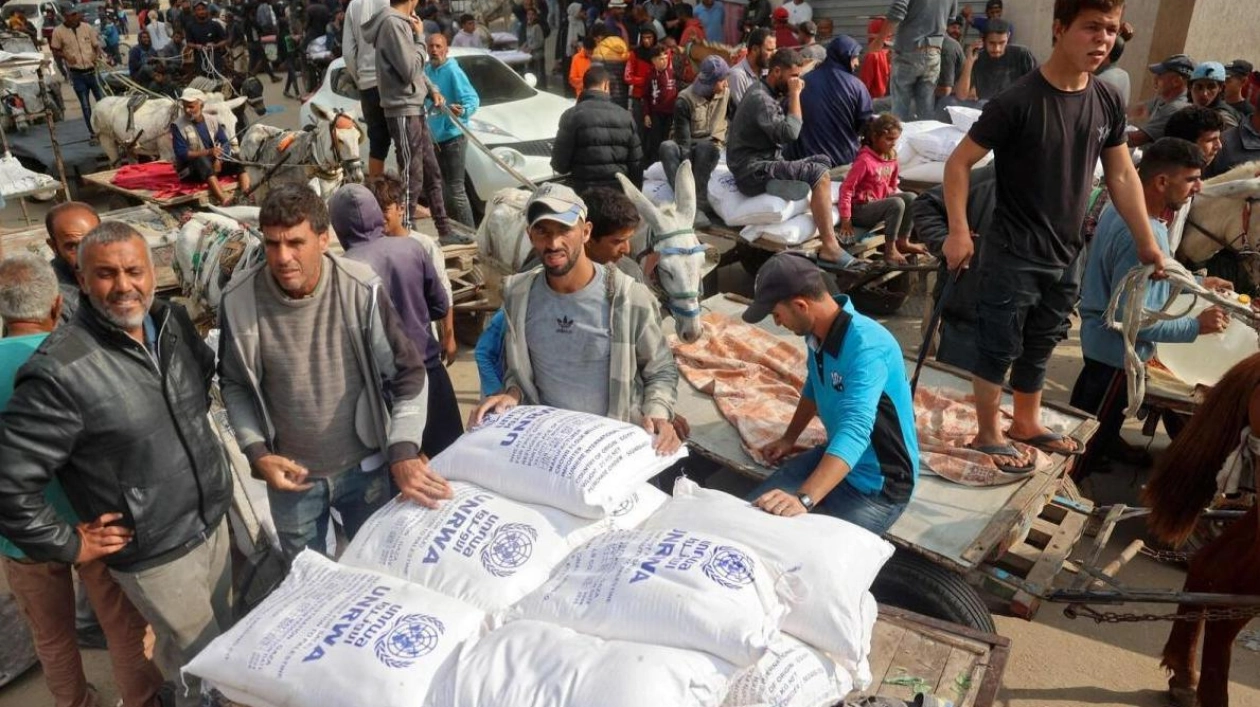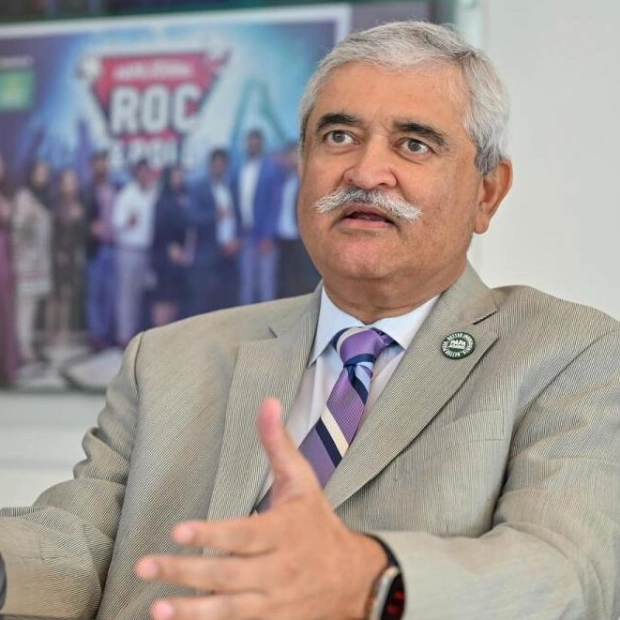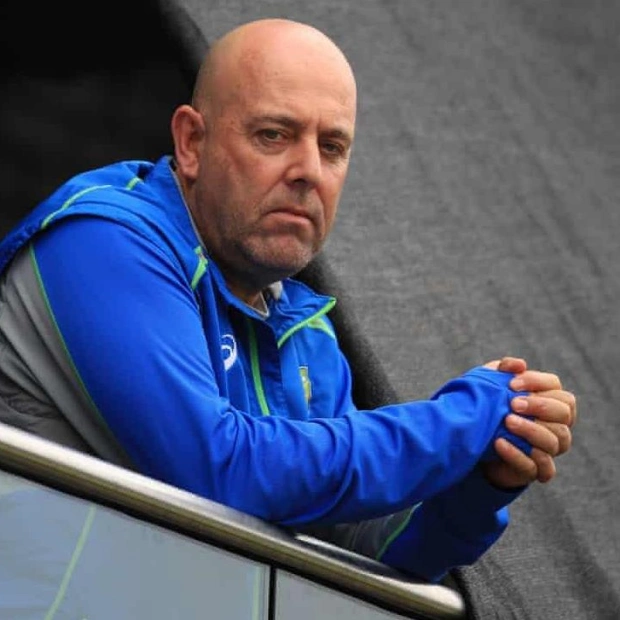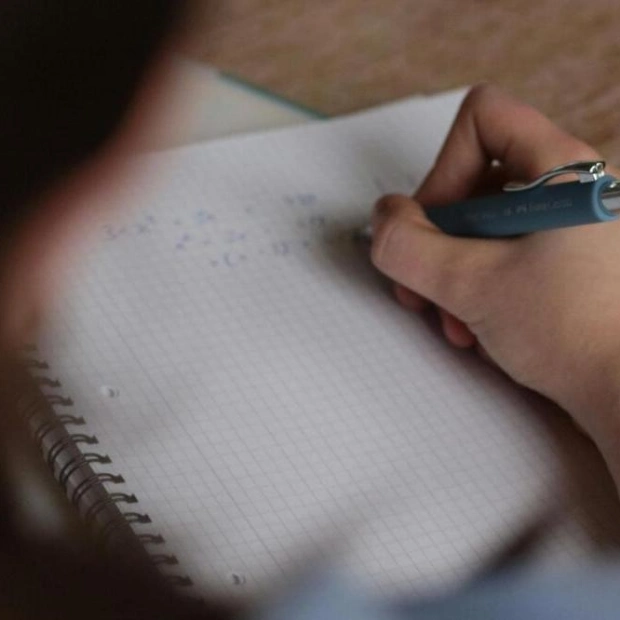On November 3, 2024, people filled their carts with sacks of flour at a United Nations Relief and Works Agency aid distribution center in Deir El Balah, amidst the ongoing conflict between Israel and Hamas. The scene was a stark reminder of the dire situation faced by many in the region.
In the occupied West Bank, residents of Nur Shams camp are deeply concerned about their future following an Israeli raid that severely damaged the UN agency for Palestinian refugees' office. The camp, home to 13,000 people near the city of Tulkarem, relies heavily on the services provided by the United Nations Relief and Works Agency for Palestine Refugees (UNRWA). UNRWA operates two schools, a clinic, and sanitation services in Nur Shams.
Refugees watched in shock as workers cleared debris from around the office, which was almost completely destroyed in an 'anti-terrorist' operation on Thursday. 'For us, it's UNRWA or nothing,' said Shafiq Ahmad Jad, who runs a phone shop in the camp. Hanadi Jabr Abu Taqa, an agency official in charge of the northern West Bank, described UNRWA as the 'mother' of the refugees, emphasizing the devastating impact of its potential loss.
UNRWA chief Philippe Lazzarini accused Israeli forces of causing the damage, while the military denied the allegations, suggesting that the destruction was likely due to explosives planted by 'terrorists'. The office will need to be relocated, a significant financial burden according to Roland Friedrich, the agency's head in the West Bank. 'The psychological impact is devastating,' he noted after speaking with residents.
Jad, whose phone shop's facade was torn off, observed the cleanup efforts and linked the chaos to a recent Israeli law banning UNRWA's activities on Israeli territory. He warned that the elimination of UNRWA would lead to increased garbage in the streets and a lack of medical care for the sick.
Mohammed Said Amar, a resident in his 70s, believes Israel is attacking UNRWA for political reasons, aiming to abolish the right of return for Palestinians. He insisted that Palestinian armed groups did not use UNRWA premises, which locals consider sacred.
Nihaya al-Jundi expressed frustration over the paralysis of daily life after each raid, with impassable roads isolating residents. Nur Shams needs international organizations like UNRWA to rebuild, especially after the damage to her center for the disabled.
The camp, established in the early 1950s, has seen a rise in armed movements in recent years, exacerbated by violence, economic insecurity, and lack of political prospects. Despite the ongoing challenges, UNRWA has resumed operations, ensuring that schools remain open as a safe haven for children.
As Hanadi Jabr Abu Taqa walked through the camp, anxious residents approached her, expressing their concerns. Mustafa Shibah, 70, worried about his grandchildren, who are deeply affected by the raids. He feels that Nur Shams residents are abandoned by Palestinians elsewhere, questioning why they bear the brunt of the suffering while others enjoy better lives.
Source link: https://www.khaleejtimes.com






